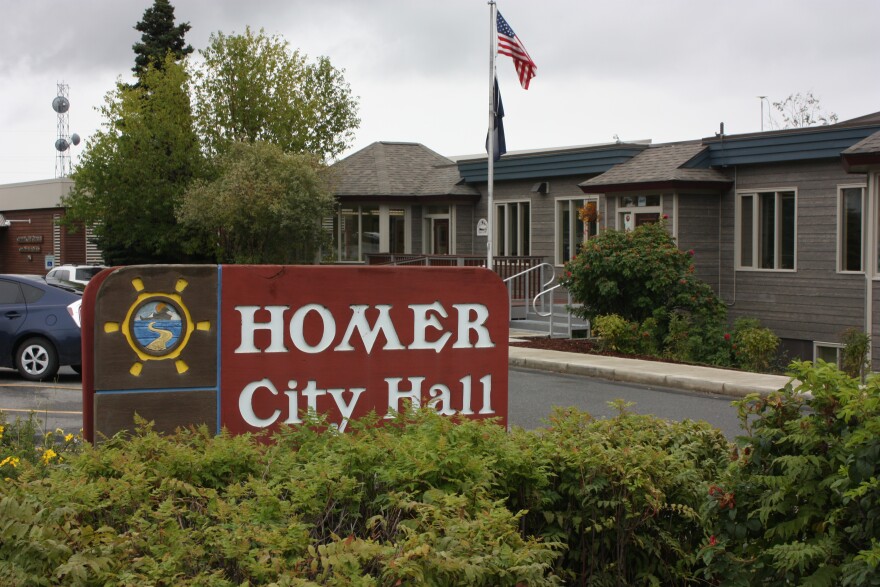The Homer City Council postponed making a decision on whether to help fund a residential drug treatment program Monday. Originally, some council members proposed donating nearly $200,000 to help Set Free Alaska, a Christian-based organization, set up a men’s residential treatment center in Homer.
But some members of the local opioid task force have some concerns about Set Free and say that the city should also fund existing local drug prevention and addiction efforts.
During Monday’s meeting, most Homer area residents who testified spoke in full support of Set Free’s plan to expand its current Matanuska-Susitna Valley based residential drug treatment program to Homer. But some residents who are part of Homer’s opioid task force want the council to proceed with caution.
Jay Bechtol is the head of South Peninsula Health Services and a member of the task force. He wrote a letter supporting Set Free’s grant proposal to the state. The state will award two $1.5 million grants to different organizations that plan to expand residential treatment services in the state later this spring.
But he does have some concerns, including See Free being a faith-based organization and the potential Homer program’s dependence on grants.
“I also have some concerns that this is a 16-bed facility,” he said. “I do not believe that the southern part of our peninsula will provide that much need, which would mean they would be busing people in for those services, and I'm not sure that our area is ready for that kind of infrastructure change.
Others said they still need more information from Set Free.
Opioid Task Force Coordinator Stephanie Stillwell thinks there is enough information to move forward, and she fully supports the treatment center. But she was caught off guard when the city proposed to help fund it.
“I was definitely happy to see that the city was supporting, but at the same time was like, wait a minute, there is this funding that I didn't realize was there,” she said.
She said the local task force itself hasn’t received city funding. Stillwell said she told the council about the local needle exchange running out of funds in the past and about the task force’s own struggles with funding.
“There’s a ton of grassroots organizations in the community that have been doing big things and we've been having to work really, really hard to find funding to creatively put these things together and so just a little bit of money could go a long way in our communities.”
Council member Heath Smith said that the opioid task force never asked for money, but Set Free did.
“So the only reason that Phillip and Set Free were able to find any money was because they came and asked,” he said. “They came to us with a proposal on what they were going to do, what they wanted to do.”
Set Free Alaska said the city’s contribution would bolster its chances at receiving state dollars. Set Free said launching a treatment facility in Homer would cost just over $3 million. Council member Smith said the dollar amount Set Free requested from the city wasn’t random.
“That number was not pulled out of my hat,” he said. “They did their number ranges of [$175,000 to $225,000] is what they were going to need.”
But councilmember Rachel Lord said at Monday’s meeting that the council shouldn’t fund just on a first come, first serve basis.
“This is almost $200,000 of public money that I feel like should maybe be a bit more of a transparent process that incorporates more people in the community to be able to be allocating those funds appropriately.”
Lord also expressed concern with public money going to a faith-based organization.
Council members Caroline Venuiti and Donna Aderhold proposed an alternative ordinance that would give less money to Set Free Alaska and give $40,000 to the local task force and $10,000 to the Homer Foundation for additional prevention and treatment related work. The council ultimately voted to postpone its decision.
“There needs to be probably some additional information provided by Set Free Alaska so that people really understand where this money is going to go, how it's going to be used,” said council member Aderhold.
Philip Licht is the executive director of Set Free Alaska. He said the money will be used to remodel an existing facility in Homer. He adds the organization already wrote a grant application to the state and losing funding support from the city could potentially delay the project or ultimately tank it.
“The state grant has a timeline associated with it,” he said. “So if we didn't have the project fully funded and we could not meet that timeline, even if [we were] awarded [money] from the state, we would have to give the money back and not move forward with the project. I mean that's a worst case scenario.”
The council will revisit the discussion during its next regular meeting on Feb. 25.




